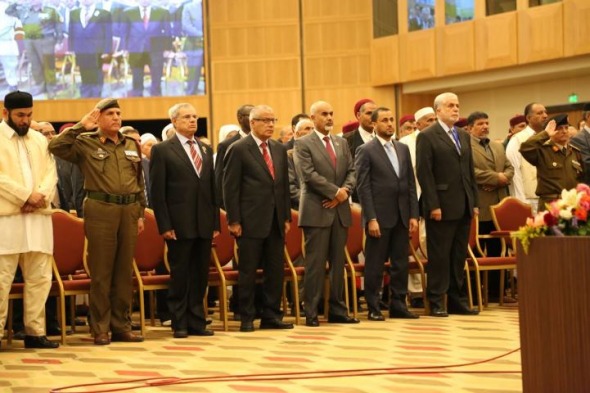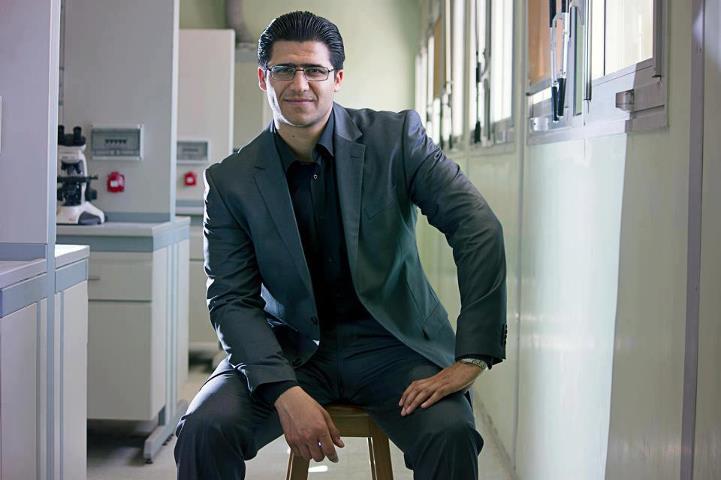By Farah Waleed.

Tripoli 20 April 2013:
Rival groups who have been the cause of continuing instability in Sebha and elsewhere on the . . .[restrict]south of the country today signed a peace deal under which both agreed to disarm and put aside past animosities.
Representatives from Tebus and the Arab tribe, the Awlad Suleiman, were brought together this morning at the Congress building in a reconciliation conference organised by the government and the General National Congress.
Sebha and the surrounding area have been the scene of intermittent clashes for over a year despite ceasefires and peace agreements.
Fighting between Tebus and Arab residents in the town, mainly from the Abu Seif tribe, broke out in March last year in a dispute supposedly over a vehicle. Some 150 people were killed and 400 wounded in the following few days before a ceasefire was brokered. Later, the conflict turned into one between the Tebus and the Awlad Suleiman.
Today’s conference, entitled ‘Reconciliation in the South of Libya’ and organised with the help of a number of reconciliation committees and elders following long negotiations between the rivals, was opened by the Chief of Staff, Major-General Yousef Mangoush.
It was attended by the President of Congress, Mohamed Magarief, the Prime Minister, Ali Zeidan, and Defence Minister Mohamed Bargathi as well as several members of Congress.
In his opening remarks, Mangoush said that everyone was aware of the problems in Libya during its present transitional stage. The challenges, he stated, were massive and difficult.
Magarief said reconciliation was the right path for the new Libya. There had been “enough Libya wounds, enough Libya bleeding, enough Libya sensitivities, enough Libya barriers”. More than ever, the country needed “reconciliation with ourselves and with our history”. The conference would set the pattern “for reconciliation in all parts of the country”, he stated.
For his part, Ali Zaidan, said his government hoped that this reconciliation process would build the new Libya, but that what was needed was determination. Reconciliation would not happen, he said, unless people returned to the values and morality of their fathers and grandfathers.
At the end of conference, a representative from each of the two groups signed a peace agreement, but not before a heated exchange of words by some of those attending the conference almost wrecked it.
A number of attendees said that they did not approve the deal and that the views of some of the conflicting parties had been ignored. The Misrata representatives quit the conference complaining they were not mentioned in the reconciliation programme.
Following the departure of Magarief and other officials, two journalists covering the conference became embroiled in a dispute with GNC security guards and were beaten. One, Mohamed Al-Ghariani, a cameraman with Al-Aan TV, had to be hospitalized as a result. The other, a freelance photographer, was able to walk away.
In a statement later today, Magarief said it was the result of misunderstanding by both sides and high emotions but he still condemned it. “Any attack on journalists is an attack on freedom of speech”, he said. However, he called on both sides to exercise restraint in future. [/restrict]









